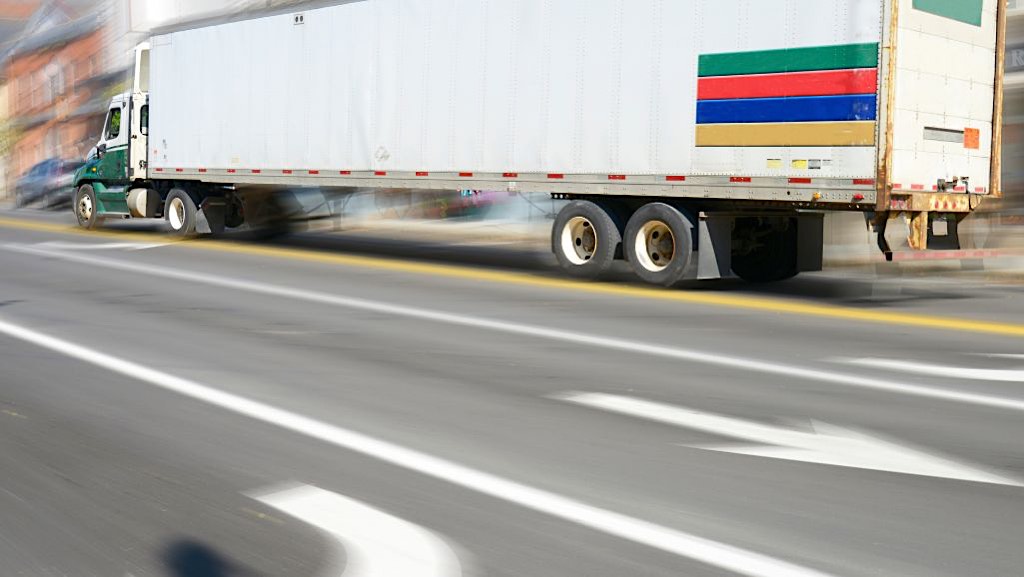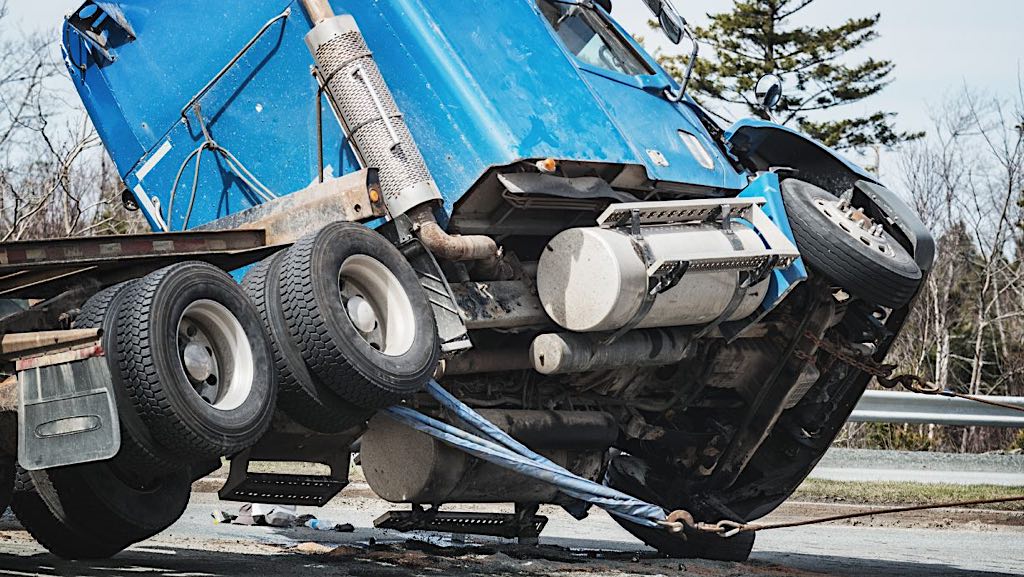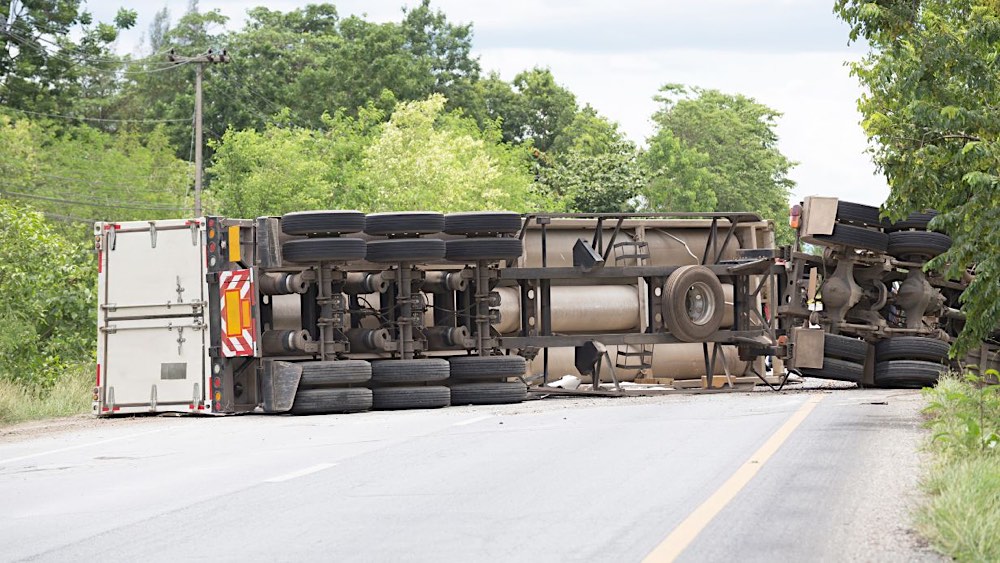 Knowing how to prepare for and drive in any weather is crucial to lowering Commercial Truck Insurance costs. According to the Federal Highway Administration (FHWA), “On average, there are over 5,891,000 vehicle crashes each year. Approximately 21% of these crashes - nearly 1,235,000 - are weather-related.”
Knowing how to prepare for and drive in any weather is crucial to lowering Commercial Truck Insurance costs. According to the Federal Highway Administration (FHWA), “On average, there are over 5,891,000 vehicle crashes each year. Approximately 21% of these crashes - nearly 1,235,000 - are weather-related.”
Bad weather comes in many forms – rain, snow, sleet, fog, wind, etc.; however, any can affect driver capability, vehicle performance, visibility, pavement friction, traffic flow, and more. Approximately 70% of weather-related crashes occur on wet pavement. Rain causes 46%, snow and sleet cause 18%, icy pavements cause 13%, and fog causes 3% of weather-related crashes, according to the FHWA.
Tips for Safe Driving in Any Weather
Monitor the Weather
Always know what type of weather is predicted and monitor weather conditions, as they can frequently change. This way, you can prepare for whatever comes your way without being caught off guard.
Inspect Your Truck
A pre-trip inspection checklist is crucial (and is the law for CDL vehicles) to your safety at any time, but it is particularly vital in bad weather. According to Smart Trucking, the minimum DOT Pre-Trip Inspection requirements include the following:
- Service brakes, including trailer brake connections
- Parking brake
- Steering mechanism
- Lighting devices and reflectors
- Tires
- Horn
- Windshield wipers
- Rear vision mirrors
- Coupling devices
- Wheels and rims
- Emergency equipment
Prepare Your Truck
In addition to the pre-trip inspection, take steps to prepare your truck if you know there is a good chance that you are heading into bad weather. For example, chains for your tires, anti-gel for your fuel tank, balancing the load correctly, etc., can decrease the risk of accidents or other issues in treacherous weather.
Watch Your Speed
“The Large Truck Crash Causation Study (LTCCS) reported that 23 percent of large-truck crashes occurred when commercial motor vehicle (CMV) drivers were traveling too fast for conditions,” according to the Federal Motor Carrier Safety Administration (FMCSA). The FMCSA recommends that you “reduce your speed by 1/3 on wet roads and by 1/2 or more on snow-packed roads (i.e., if you would normally be traveling at a speed of 60 mph on dry pavement, then on a wet road, you should reduce your speed to 40 mph, and on a snow-packed road you should reduce your speed to 30 mph).”
Allow for Adequate Stopping Distance
“The average stopping distance for a loaded tractor-trailer traveling at 55 mph (in ideal conditions) is 196 feet, compared with 133 feet for a passenger vehicle,” according to the FMCSA. On slippery surfaces, a truck needs even more stopping distance. Therefore, to avoid collisions, you must adjust the distance between you and the vehicle in front of you based on weather conditions, road conditions, visibility, and traffic.
Improve Visibility
Rain, fog, snow, etc., can significantly decrease visibility. Do what you can to improve visibility and ensure other drivers can see you by clearing your windshield and windshield wipers, cleaning off and turning on your headlights, etc. Blind spots are always a concern for truck drivers, but bad weather conditions can make it even harder to see vehicles in your blind spots. Therefore, be even more careful when changing lanes in poor visibility.
Carry a Survival Kit
Hope for the best, but prepare for the worst! A survival kit can help keep you safe and/or get you back on the road. There is no one-size-fits-all when it comes to survival kits. Think about emergencies you may run into, and consider what you or your truck may need. Here are some suggestions:
- Nonperishable Food
- Bottles of water
- Extra clothing
- Winter clothing, such as hats, gloves, etc.
- Blankets
- Medication
- Warning flag
- Snow shovel
- Ice scraper
- First-aid kit
- Flashlight and batteries
- Jumper cables
- Portable phone charger
- Ice cleats
- Toilet paper
- Hand and feet warmers
- Safety vest
- Cash
- Wheel chocks
How to Save More on Truck Insurance
At American Insuring Group, we go beyond providing you with affordable truck insurance. We carefully analyze the needs and risks associated with your business and match you up with the best trucking insurance policy by carefully analyzing many competing insurance companies.
The result? You get high-quality Commercial Truck Insurance coverage at a very affordable price. Get a free quote today by calling (800) 947-1270 or (610) 775-3848, or connect with us online.



 Driver fatigue could be costing your company higher
Driver fatigue could be costing your company higher  Your
Your  We focus a great deal of time on safety to lower
We focus a great deal of time on safety to lower  One way to lower
One way to lower  When we think of ways to lower the number of claims to reduce
When we think of ways to lower the number of claims to reduce  When we think about factors that increase
When we think about factors that increase  If you are or are planning to become an independent owner-operator, you must ensure that you have the right
If you are or are planning to become an independent owner-operator, you must ensure that you have the right 





